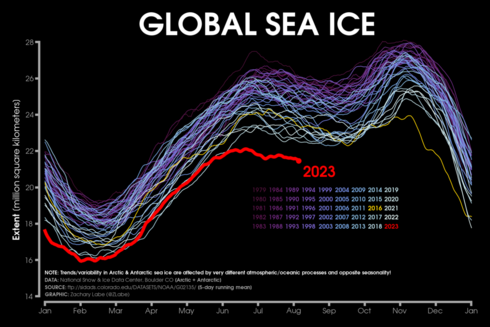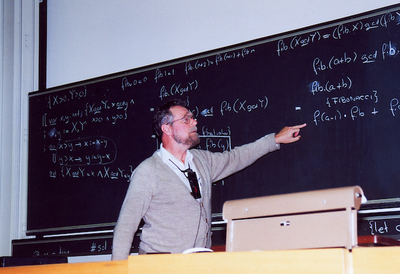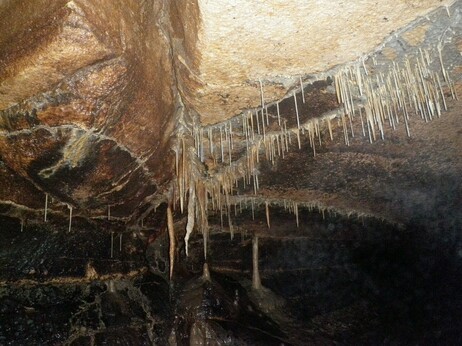
A nice commentary in #NatureMagazine by @loopdlupien about a newly published article on eastern African paleoclimate change by Baxter & colleagues (link: https://www.nature.com/articles/s41586-023-06272-5) - can simulations of future climatic trends in eastern Africa be reconciled with modern trends?
Past climate unravels the eastern African paradox: https://www.nature.com/articles/d41586-023-02297-y
googles getting hit with a 5 billion dollar class action because it turns out incognito wasnt really incognito
https://www.reuters.com/technology/google-fails-end-5-billion-consumer-privacy-lawsuit-2023-08-08/
Extinction alert issued for Mexico's threatened vaquita porpoise
@markmcelroy Nice idea!
The extent of global sea ice has been consistently setting new daily records for at least the last two months...
More sea ice graphics available at https://zacklabe.com/global-sea-ice-extent-conc/
An interesting tidbit about Edsger Dijkstra's Workweek in Cal Newport’s blog. #GTD #Academia https://calnewport.com/edsger-dijkstras-one-day-workweek/
The features in Coldwater Cave are just stunning. It's like a cave geology textbook down there.
The cave itself is flooded, with cold water actively flowing through it (Coldwater Cave, amirite?). Even in summer it was pretty cold.
On the ceiling, you could see really neat joint patterns and how fluids exploited those joints, flowed through, and then deposited calcite as they hit the cave and CO2 was released, changing equilibrium and causing chemical precipitation.
Very proud of our #NSF-funded #REU students at the Dept of Geosciences, University of Arizona — our program called “Clouds 2 Core” (C2C) is only for students enrolled in 2-Yr Community and Tribal Colleges and the current cohort of 11 students are from colleges and towns all over #Arizona (and #NM and #TX). Today is their final presentations after 8 weeks of research work, here in #Tucson. Some photos below!
#UAC2C23 #UAGeoscience #UAZGeoscience #UniversityOfArizona #Geoscience #UGResearch
Here’s a couple of #macro #photograph of some type of (presumably #cobweb?) #spider in our backyard making a #snack out of a #darklingbeetle #beetle!
Timery 1.5.6 is available and should fix a possible issue with projects in saved timers on the iOS 17 and macOS Sonoma betas.
https://apps.apple.com/us/app/id1425368544
Stay tuned for lots of new goodies coming later this year!
Happy time tracking!
@DrEvanGowan I think Crack The Skye was technically the best amongst those, but Leviathan is a personal favorite; v unique when it came out.
@kau I’ve never experienced worse editorial handling than at Nature brand journals - we had a paper at Nat Comms (which did eventually come out there) where the editor rejected it after multiple rounds of review because one of the reviewers (who we’d already flagged as problematic) sent in a review for a completely different manuscript and the editor didn’t realise and rejected it. They then proceeded to ignore all of our emails until we got their senior editor involved. Crazy
I spent SO MANY HOURS in grad school manually adjusting peak baselines and deciding what should or shouldn't count as a peak and then going back and doing it all again because I called it a peak in one sample but not the other. I'm SO happy that progress is being made on this problem and very excited to read this preprint!
https://www.biorxiv.org/content/10.1101/2023.07.28.551024v1
#GCMS #LCMS #XCMS #AnalyticalChemistry #Chromatography
#Metabolomics
@cobalt Hope you all get rain up there soon! This storm was crazy though…!
@rcpierce We enjoy them very much!
- https://www.instagram.com/holy_kau
- Paleo² Lab
- https://thirumalai.geo.arizona.edu
Earth/climate scientist in the southwest US.










